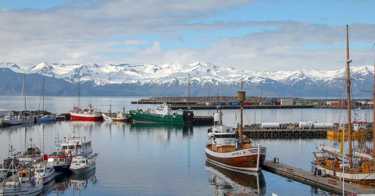Iceland: What to see and do?
Iceland, the volcanic island in the middle of the North Atlantic, is a unique and fascinating place to visit. Here are some of the main sights to see in Iceland to help you plan your trip.
The first thing to see in Iceland is of course the sheer nature. The landscapes are spectacular and are often referred to as 'lunar'. Geysers, glaciers, waterfalls and hot springs are the main natural attractions. Thingvellir National Park is a must-see, as this is where the American and Eurasian tectonic plates meet. You can also visit the famous Strokkur geyser, which spurts out water every few minutes.
Then there is the city of Reykjavik, the Icelandic capital. Although small, it is full of cultural sights such as the Hallgrimskirkja, a modern and impressive church with a breathtaking view of the city. The city is also home to interesting museums, such as the National Museum of Iceland and the Museum of Contemporary Art.
To get around Iceland, there are several options. Bus travel is convenient and affordable, and there are also organised bus tours to the main attractions. However, most visitors choose to hire a car to explore the country at their own pace. Icelandic roads can be bumpy, so an off-road car is often recommended.
Finally, if you want to see the Northern Lights, the best time to visit Iceland is from September to April. It is important to note that the Northern Lights are not guaranteed, as they depend on the weather conditions.
Iceland is a unique and incredible destination to explore for nature lovers and the culturally curious. With its spectacular scenery and cultural attractions, you will never be bored in Iceland.
Iceland: When to visit?
If you're thinking of travelling to Iceland, the choice of season can have a significant impact on your experience. Iceland is known for its unpredictable and changeable climate, so it's essential to consider a number of factors before planning your trip.
If you're looking for warmer temperatures and sunny days, the best time to visit Iceland is in summer, from June to August. Average temperatures during this period are between 10 and 15 degrees Celsius, with some days reaching 20 degrees. The days are also very long, even endless in some regions, allowing you to take full advantage of Iceland's magnificent landscapes. It's also the ideal season for outdoor activities such as hiking, trekking and whale watching.
However, it's important to note that summer is also Iceland's busiest tourist season. Popular sites can be very crowded, and accommodation can be more expensive. If you prefer to avoid the crowds, you can opt for spring (April and May) or autumn (September and October), when the weather is cooler and there are fewer tourists.
The worst time to travel in Iceland is generally winter, from November to March. Temperatures can drop below zero, and the days are extremely short. However, if you're prepared for the cold, you can enjoy the extraordinary Northern Lights that light up the Icelandic sky. Winter activities such as snowmobiling and bathing in the hot springs also offer a unique experience.
The best time to travel in Iceland depends on your personal preferences. If you're looking for mild temperatures and long sunny days, summer is the ideal choice. If you prefer to avoid the tourist crowds, spring and autumn are recommended. And if you're looking for a real winter adventure, winter offers a host of unique activities. Whichever season you choose, Iceland is a fascinating destination that will never fail to amaze you.

